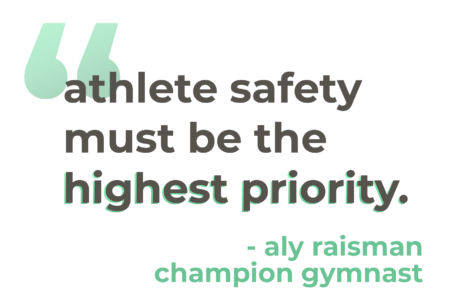As a coach, you are a big part of your athlete’s lives. Competitive sports are demanding but rewarding, and you see your athletes through a lot. Kids need to know that they are valued and believed in, so your role as a coach is crucial.
Because one in 10 children will be sexually abused before their 18th birthday, you need to be prepared to have survivors on your team. Position yourself so that your athletes know you’re a “safe adult.” If a child knows that it’s safe to trust you, it can go a long way toward preventing future abuse and ending abuse as it happens. You can become the “safe adult” by having clear conversations around safety and modeling safe behavior. The key is to empower, not frighten, your athletes.
Here are a couple of major things to convey:
- Lead with the Importance of Safety: Make sure your team members know that their safety is of the utmost importance to you. If they feel uncomfortable, unsafe, or something dangerous happens to them, let them know they can always tell you without fear of repercussion.

- Encourage athletes to be aware of their environment. Given how public sports and competitions can be, encourage your team to practice situational awareness. It may be helpful to use the buddy system so that no one goes anywhere alone.
- Emphasize to athletes that they should always respect each other’s personal boundaries, and that you will too.
- Be Clear About Your Role: Explain to your athletes the roles of coaches, trainers, and staff. Tell them what they can expect from interactions with the adults. Make it clear what the expectation is for the athlete behavior, as well (i.e. courtesy, respect, etc.). This sets an expectation for all interactions, and helps athletes understand how to approach interpersonal interactions.
- Specify that there should never be a time where athletes are alone in one-on-one, isolated situations with coaches, trainers, staff, or older children. If the situation is not observable or interruptible, it’s not allowed.
- Make sure they know and can refer back to the Gym’s rules or Code of Conduct. This helps make the expectations clear, especially if the rules are posted.
- Role Play: Talk to them about different scenarios that are specific to your facility to help them feel comfortable facing unforeseen situations.
For help teaching your athletes about bullying, abuse, and digital dangers, check out Monique Burr Foundation for Children’s Athlete Safety Matters program.
Follow us on social media to stay up to date and join the conversation.


